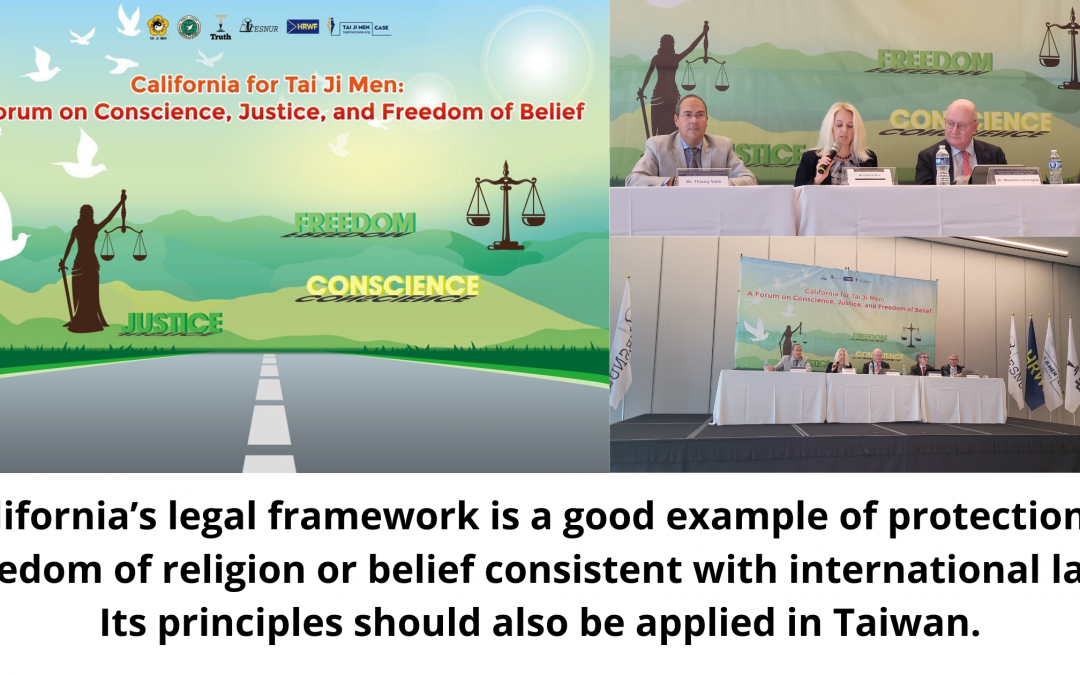California’s legal framework is a good example of protection of freedom of religion or belief consistent with international law.
Its principles should also be applied in Taiwan.
By Christine Mirre
*Introduction to the conference “California for Tai Ji Men: A Forum on Conscience, Justice, and Freedom of Belief,” organized by CESNUR and Human Rights Without Frontiere on October 13, 2023.
California, the Golden State, is known for its stunning landscapes, thriving entertainment industry, and diverse culture. Beneath the surface of this multifaceted state lies another remarkable aspect of its diversity: religious pluralism. From the Spanish missions of the 18th century to the bustling metropolises of the 21st century, California’s religious landscape has evolved into a vibrant tapestry of faiths and beliefs.
Today, California is one of the most religiously diverse states in the United States, representing a wide range of religious traditions and beliefs. It continues to uphold the principles of religious freedom and conscience as essential components of its legal and social fabric.
California, like the rest of the United States, upholds the principles of religious freedom as guaranteed by the First Amendment to the U.S. Constitution. The First Amendment states: “Congress shall make no law respecting an establishment of religion or prohibiting the free exercise thereof.” This amendment applies to all states, including California, through the incorporation clause of the Fourteenth Amendment.
This amendment protects freedom of religion or belief. It ensures that individuals have the right to practice their religion or belief freely and without government interference.
California’s approach to religious freedom is consistent with the broader framework established by the U.S. Constitution and federal law, as well as international law.
All of the fundamental principles set forth in this amendment are well respected in California, such as:
Non-discrimination: California has laws that prohibit discrimination on the basis of religion in various contexts, including employment, housing, and public accommodations with the California Fair Employment and Housing Act (FEHA).
Freedom of Worship: Californians have the right to practice the religion of their choice, or no religion at all, without fear of government interference or discrimination.
Protection of Religious Institutions: Religious institutions in California, such as churches, mosques, synagogues, temples, and other houses of worship are protected from government interference and discrimination. They are generally tax-exempt under federal and state law.
Separation of Church and State: California adheres to the principle of separation of church and state. This means that government agencies cannot favor one religion over another, and they cannot endorse or promote religious activities or beliefs. This separation is frequently upheld by the courts.
Religious land use and zoning: California, like other states, has laws that protect religious organizations from discriminatory land use and zoning practices that could prevent the construction or expansion of religious facilities.
The experts in this seminar will give us an overview of how California typically understands and protects equal protection and freedom of religion or belief, and how legal challenges with some religious groups have been resolved.
By explaining how California has handled a number of emblematic religious freedom cases, the experts may be able to stimulate Taiwan’s interest in how to properly handle the case of the Tai Ji M while respecting their rights—and ensuring that justice is finally restored to them.



